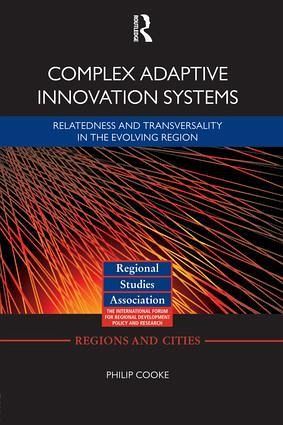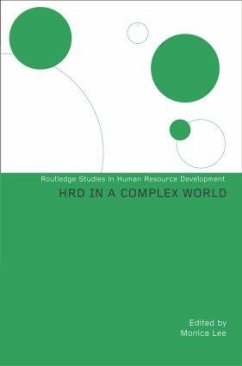
Complex Adaptive Innovation Systems
Relatedness and Transversality in the Evolving Region
Versandkostenfrei!
Versandfertig in 1-2 Wochen
70,99 €
inkl. MwSt.
Weitere Ausgaben:

PAYBACK Punkte
35 °P sammeln!
Leading up to the financial crisis of 2008 and onwards, the shortcomings of traditional models of regional economic and environmental development had become increasingly evident. Rooted in the idea that 'policy' is an encumbrance to free markets, the stress on supply-side smoothing measures such as clusters and an over reliance on venture capital, the inadequacy of existing orthodoxies has come to be replaced by the notion of transversality. This approach has three strong characteristics that differentiate it from its failing predecessor. First, as the name implies, it seeks to finesse horizon...
Leading up to the financial crisis of 2008 and onwards, the shortcomings of traditional models of regional economic and environmental development had become increasingly evident. Rooted in the idea that 'policy' is an encumbrance to free markets, the stress on supply-side smoothing measures such as clusters and an over reliance on venture capital, the inadequacy of existing orthodoxies has come to be replaced by the notion of transversality. This approach has three strong characteristics that differentiate it from its failing predecessor. First, as the name implies, it seeks to finesse horizontal knowledge interactions as well as vertical ones, thus building 'platforms' of industrial interaction. Secondly, it is not a supply, but a demand side model in which needs-driven innovation rather than pure market competition prevails. Finally, it is ongoing through recessionary times, being more robust than over-specialized approaches to economic growth. The intellectual origins of transversality lie in an aspiration to promote eco-innovation, one of the key hopes of assisting Western regional and national economies to re-balance and escape recession. The policy models of key regional exponents of the concept are explored and their goals achievement is assessed. An array of policy instruments and measures is presented for hands-on policy implementation. The book will be of vital interest to academics as teachers and researchers as well as policy advisers and public servants.














